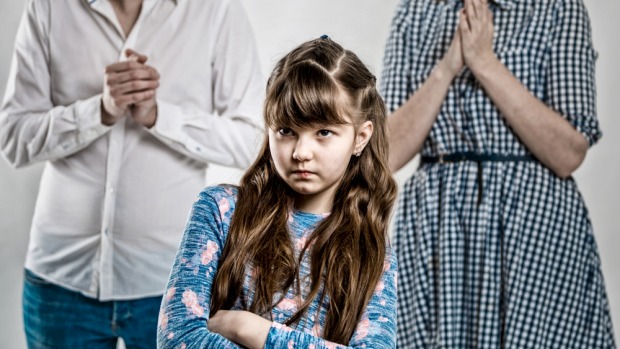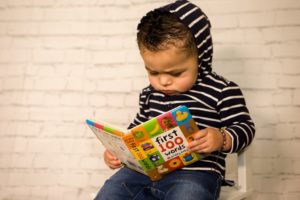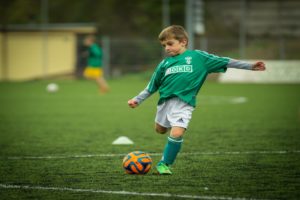All good parents would like to make sure their children succeed, but their actions could harm children’s lives at a certain level. During the teens, parents will monitor what children are doing and how they are living. Even after the child went into work or to college, this could continue, as too engaged parents do not easily retreat even when the child leaves the nest. This is called snowplow parenting, which means that the parent clears the obstacles.
What is Snowplow Parenting?
It is a sort of parental care that means that problems and obstacles are removed from the path of the child rather than teaching him or her how to do so. This makes it difficult and daunting for adult children to face the pressures of becoming an adult, including paying bills, finding and going to work, or maintaining a professional relationship. This makes them reckless.
The difference between the snowplow parent and the helicopter parent is that the helicopter parent can continuously watch the kids do their homework and make sure that it is completed to perfection, while the snowplow parent will literally do the children’s work for them.

Effects of Snowplow Parenting Technique on Child
1. Increased Anxiety
When parents make anxiety-based decisions, they may act in ways that don’t help the kids manage scary and challenging situations, increase resilience, and grow coping techniques.
2. Poor Problem-Solving Skills
Snowplow parents are like a sprinter when life is a marathon. A snowplow parent may be effective in pushing their child into a competitive soccer team, or taking a leading role in a school play, or even helping them get into a prestigious college. This might however will their problem-solving skills and not allow them to pursue their own interests.
3. Lack Of Self-Reliance
Children can experience a lack of self-efficacy when they are not allowed by parents to deal with the consequences of their acts. They won’t know their acts may have a positive impact and are less likely to act.
4. Problem In Dealing With Frustration
Children with snowplow parents are less comfortable in frustrating situations. Kids who can not cope with frustration always have a hard time learning something new.
Snowplow Parenting Signs
Here are some signs that prove you are a snowplows mom or dad
1. Paying Their Expenses Regularly
Funding the lives of the children will potentially prevent them from having a clear understanding of budgets, which would result in bad management of personal finances. Although exceptions such as injuries and illnesses are normal, parents should never fund anything else directly in their child’s life.
2. Doing Their Work
It is not unusual for children studying at schools to leave their laundry at home, but even after college, it is a problem. Cleaning and running errands can be annoying, but they are part of adulthood. If kids do not learn how to manage their time and clean up, they will depend always on their parents.
3. Give Too Much Advice On Career
One of the best examples of snowplow parenting consists of unnecessary career advice for their children. Deciding on a career choice is an important part of being an adult, but children will not become adults if parents do so for their children.
4. Schedule Their Medical Appointments
It can be tedious to make appointments for any medical reason but every child must master this ability. If your child leaves the nest and still depends on you or your partner for an appointment, the child is a victim of this kind of parenting.
Snowplow Parenting Cons
1. Ineffective
If parents eliminate all the barriers, children never really experience failure. Although failure is a disagreeable way for people to learn, it helps people to grow.
2. Expensive
A child raising may be costly, particularly if you are a parent with snowplows. The parent of a snowplow also aims to give children benefits by clearing paths, which means that the parent will write checks and spend extra money on private teachers, coaches, or tutors.
3. Racist
Parents clearly injure their children if they are violating, bending, or disregarding the law. Parents who play it directly are also unfair. This is felt during admissions to university. The major problem is that there is no question of a white kid who had never earned a place in college. Meanwhile, colored children who earn a place in school are said to have been given an affirmative treatment, although they have worked very hard to achieve it. These parents will benefit more from systemic racism in support of their cause.
4. Selfish
Being a parent of snowplow never concerns love. The terrible truth about such childhood is that love covers the anxiety of children in a very competitive society. The causes for this include income inequality, blocking pathways for children whose parents go straight toward success.
5. Time-Consuming
Giving kids every chance means investing a lot of time. Snowplow parents have very little time for themselves, as they spend their free time driving the children to multiple appointments. Over-scheduled kids would have parents over-scheduled, so nobody in the family will have time to play.
How To Avoid Being A Snowplow Parent
Here are a few tips on raising an independent child:
1. Be A “Big Picture” Parent
Children need to be prepared for adulthood by allowing them to solve their problems and think independently. Instead of solving a problem for a child, ask how he or she wants to solve the problem and what should be done otherwise next time. Provide your own ideas, but always value the solution of your kid.
2. Focus On Long Term Goals
One great way to avoid being a snowplow parent is to focus on long, not short, objectives.
3. Control Your Anxiety
Parents need their own anxieties to be managed. Parents are more likely to raise independent children if they can guide their values.
These days, the world may seem difficult for children, trying to make things easier for them. They should, however, be given opportunities to overcome those issues themselves. A child should have a life of its own and when the parents interfere they interfere with the development of the child.
Also Read: Pros And Cons Of Free-Range Parenting













